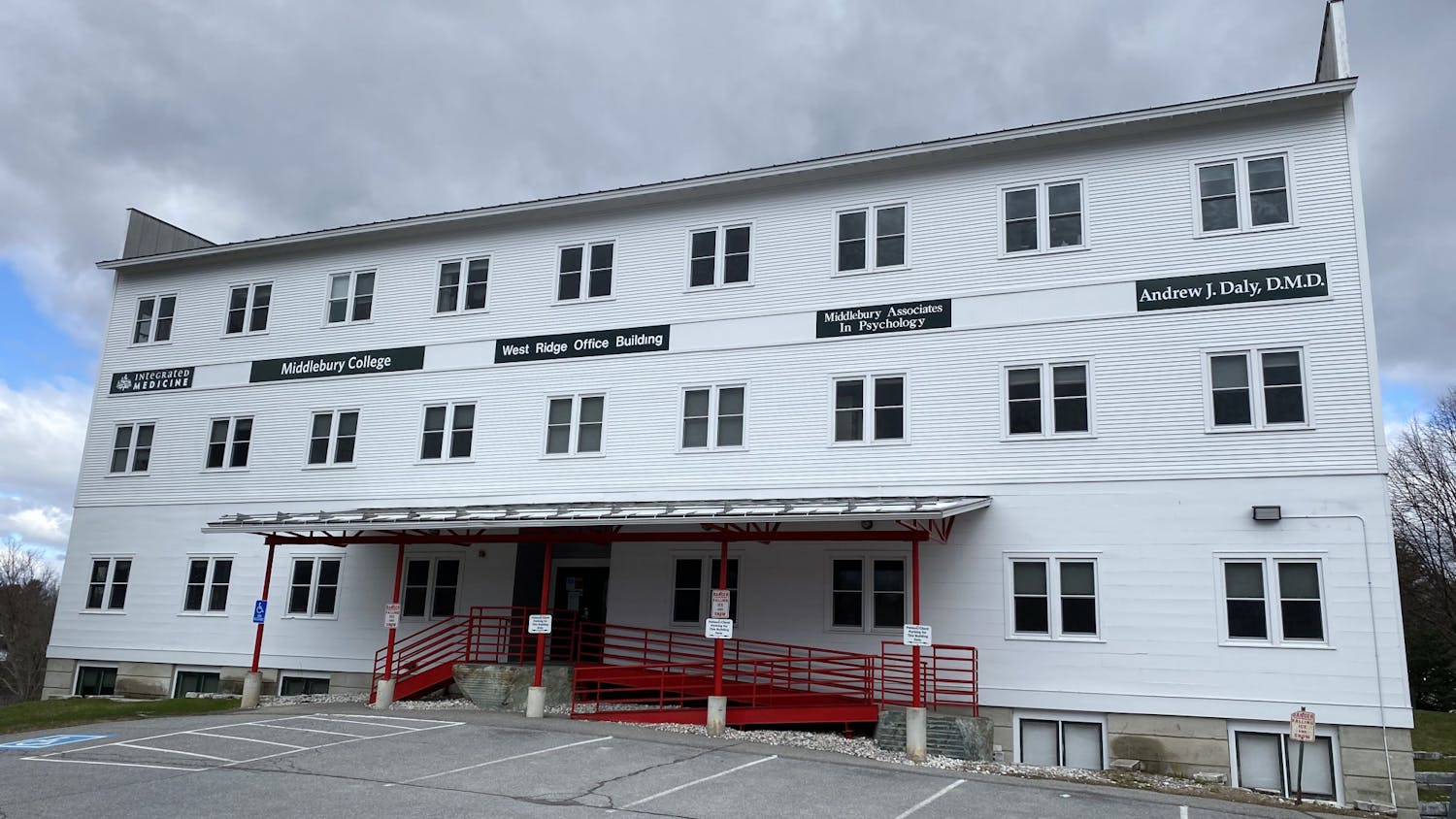In early April, the Ethan Allen Institute (EAI), a conservative think tank in Vermont, alleged that ten Middlebury graduates voted in the state in the 2020 election though they were no longer eligible to vote in Vermont. The students had not been removed from the voter rolls upon graduating, and the EAI argued this proved that state voter rolls are not up to date. The Vermont Secretary of State and Middlebury Town Clerk say that these claims are unfounded.
WCAX, a television station in Burlington, aired the EAI’s allegations on April 5 but ran a follow-up story on April 6, in which state and local election officials refuted the voter fraud claims.
Meg Hansen, president of the EAI, sent an email to Vermont Secretary of State Jim Condos at 3:14 p.m. on April 4, sharing the findings of their investigation of Middlebury’s voter roll. Condos responded to the allegations in a 12:51 p.m. email on April 5, and the EAI’s claims were published on WCAX’s website at 4:20 p.m. on April 5. According to Middlebury Town Clerk Ann Webster — the presiding election official for the town — WCAX did not reach out to her or Secretary of State Jim Condos for comment prior to airing the segment.
In her email, Hansen explained the EAI’s research methodology.
“We chose the years 2015–19 for this investigation because there was a good chance that these students had registered to vote in the 2016 and 2018 elections, and upon graduating, we suspected that they may not have been removed from Middlebury’s voter roll,” she said. “Voter rolls in Vermont have not been cleaned in decades.”
According to a post on their website, the EAI found the alleged irregularities by using lists of graduating students and Middlebury citizens who voted in 2020, and cross-referencing this information with alumni’s LinkediIn profiles.
Condos challenged Hansen’s statements, arguing for the validity of elections and informing Hansen of the work that the town clerk and Board of Civil Authority volunteers do to ensure a recent checklist of voters.
“By law, [Boards of Civil Authority] are required to perform a name-by-name review of the voter checklist every two years,” Condos replied.
In response to the EAI’s allegations, Webster sent back her findings, cross-referencing the names given by the EAI with her checklist and voter registrations. Webster checked whether or not the individuals had been sent a ballot, if the Town Clerk’s office had received one back, where the voter sent this ballot and more information to confirm that the former students did not vote fraudulently.
“Most of it was pretty easy research,” she said.
Of the ten students accused of voting fraudulently, five were previous college students who had graduated and now live abroad. Webster explained that any registered voter who moves to or lives in a foreign country as an American citizen stays registered in the last place they registered to vote. So, although they may live abroad, the students were still legally allowed to vote in the 2020 Middlebury election. Webster also explained that some of the students implicated in the EAI’s allegations had graduated but were still living in Middlebury and therefore eligible to vote, and only two of the contested votes still require review.
One of these two, according to Webster, was the product of an error involving an in-person vote cast by a current Middlebury resident with the same name as a former Middlebury student. Election officials mistakenly checked off the name of the former Middlebury student in the “participation report” that gets sent to the state. This document is accessible to researchers, but is not the same as the legal record of votes, Webster explained, which would still have the correct information about the identity of the voter. The former Middlebury student did not vote in the election, Webster said.
Webster also explained that Vermont law has clear guidelines for the process of removing someone from the voter roll.
“There is a fairly long process to take people off the rolls and you can’t just decide like “Oh I think this person has left, I’m gonna take them off,” Webster said. “You have to send them a letter, and if they respond to it, then you can update your records based on that. If they don’t respond, you have to wait until two general elections have passed without them voting before you can take them off. So it can be up to four years depending on when they actually get challenged if they don’t get back in touch.”
Webster said she invites examination of elections and voter rolls from watchdog organizations and individuals, but she had concerns about the EAI’s approach.
“I think what I found distressing was that they sent it also to the WCAX and put it out on public media before they had done what I considered to be their homework and checking up on these things,” Webster told The Campus.
According to Webster, some of the recent checking of voter irregularities — like that conducted by the EAI — may stem from the continued allegations of fraudulency in the 2020 presidential election.
Webster expressed distress over the allegations. “I think it’s a shame to put doubt during this, as I say, political atmosphere,” she said.
In his response to Hansen about the EAI’s research, Condos said, “Your statement that ‘Voter rolls in Vermont have not been cleaned in decades’ is simply not accurate, and frankly lazy. It is this kind of hyperbole that is causing undue mistrust of our elections.”
Normally, Webster said she would welcome the checks and balances that independent organizations provide in order to ensure a democratic voting process. But allegations of voter irregularities are very rare, and Webster believes the intention of the EAI is not only to clarify the democracy of the voting process, but to sway public attitude towards mistrust and fear.
“In Vermont it’s very good in my opinion that every effort is made to make sure that people who are legally authorized to vote have the opportunity to do that,” she said.
Jason Duquette-Hoffman, advisor to MiddVotes — a student organization at the Center for Community Engagement — shed light on Middlebury’s process for facilitating voting on campus. The student-led, nonpartisan voter organization aims to provide students with the information and resources to engage in democracy and hopes to foster students’ inclination to do so, Duquette-Hoffman said.
“So most of our efforts on campus are really around voter registration. So [we’re] making sure that students are registered to vote wherever they choose to register according to where they’re eligible,” Duquette-Hoffman said.
While many students choose to register in their hometowns, Duquette-Hoffman said some choose to register to vote in Middlebury instead. On election day, the organization runs shuttles to the polls so that transportation is not a limiting factor in voter participation.
In a national election year, MiddVotes typically starts their programming to encourage and provide resources for student registration in the fall semester leading up to the election in November.
“We’re part of a number of coalitions of higher ed institutions who are supporting students in voting — so we submit a democratic action plan as part of our participation as one of those coalitions, usually in the spring before the election year,” Duquette-Hoffman said.
Duquette-Hoffman and MiddVotes are currently working on a plan this semester for the 2022 election midterms.

Emily Hogan '24 (she/her) is a Local Editor.
She is studying Environmental Policy with a minor in Math. In addition to writing and editing for the Campus, she also dances with the On Tap dance troupe and serves on the Environmental Council. She has previously worked with the Sustainability Solutions Lab at Middlebury.



